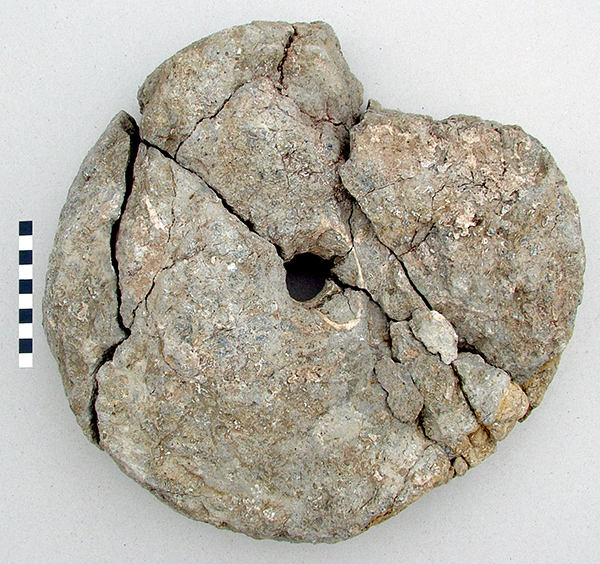
Iron Age quern (150-50 BC) found at North Foreland, Broadstairs. Reconstructed from 11 pieces, c 320mm diameter.
While prehistoric periods are often separated by innovations in the technology of cutting tools, from flints through to copper, bronze and iron implements, one technology seems to link all these periods and to extend nearly to the limits of our own living memory.
For many thousands of years hand grinding of cereals and grains were essential to processing the fruits of agricultural labour into the the food that sustained life each day. In much of the developing world hand querns, mills and grindstones remain an essential part of daily life.
While much of society was devising new and innovative ways of chopping down trees, cutting raw materials and taking a swipe at each other with the latest materials, somebody somewhere was grinding out flour with a rubbing stone, a rotary quern or hand mill. The application of animal, water or steam power eventually scaled up the process, but somewhere in the mechanism remained the grinding surfaces between two stones.
On many sites, whatever the prevailing ‘… Age’ indicated by the pottery, grain processing and storage are the predominant finds, suggesting that what unites the developing history of Britain is one long Grain Age.